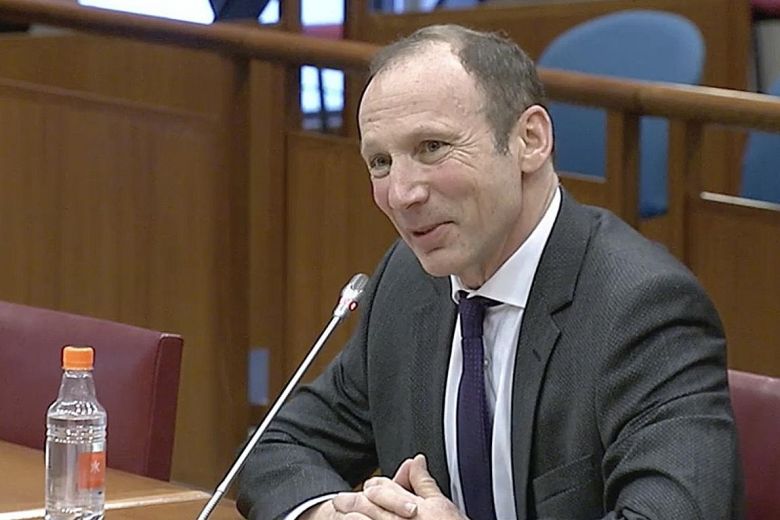Selective news consumption real threat to democracy, says expert

Mr Dan Shefet said algorithms used by technology firms determine what articles show up on a person’s newsfeed, creating bubbles and echo chambers. PHOTO: GOV.SG
SINGAPORE — The real threat to democracy is not deliberate online falsehood, but selective news consumption, said a European lawyer and IT expert.
“The overreaching problem is that the news I get is not the news you get and so on,” Mr Dan Shefet noted in his written submission to the Select Committee on deliberate online falsehoods.
Algorithms used by technology firms such as Facebook track users’ online activities and preferences for targeted advertising, he said.
These also determine what articles show up on a person’s newsfeed, creating bubbles and echo chambers. “That is very dangerous in a democracy. Whether it is fake or not is not the point,” he warned the committee in person yesterday (Mar 28).
He said this problem should be addressed in the run-up to major political events such as an election. “It is a question of suspending the echo chambers for five weeks before an election so every one has the same news,” he said without elaborating.
Mr Shefet, also a consultant to Unesco in the area of racial and religious radicalisation, said it was important for governments to regulate tech firms and the online space.
One way is by appointing an Internet ombudsman to offer guidance to Internet platform providers and search engine operators on what is unacceptable content.
Mr Shefet also raised another concern – behavioural psychology research which could be used to manipulate people on a large scale.
He cited research being conducted by Stanford University on the 60 “persuasion points” that each person is vulnerable to.
“If I had the data, I could persuade you to do anything I want you to do. It is dangerous to have this kind of science, this kind of research, if it falls in the wrong hands, as we saw with Cambridge Analytica,” he said.
He was referring to how the British data-mining firm had reportedly used Facebook to collect the private data of tens of millions of Americans to help United States President Donald Trump during the 2016 US presidential election.